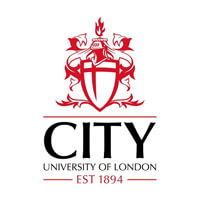fees waived
Energy and Sustainability Engineering, MEng (Hons)
City, University of London, United Kingdom
Subject ranking
UK / Guardian 2025 38th
UK / QS 2025 39th
UK / CUG 2025 40th
Costs
food & rentS$25.1K / year
Entry requirements
Scholarships
Limited quantity
Information
Code
Intakes
Website (External)
Programmes
Information
Duration
2029
This four-year Energy and Sustainability Engineering degree provides a strong scientific and technical foundation for designing and managing efficient, cleaner energy systems. Students learn to investigate renewable resources, navigate regulatory frameworks, and address global energy challenges through a multidisciplinary approach. The program emphasizes innovative solutions via individual and group projects, industry collaborations, and access to world-leading research facilities. An optional placement year enhances employability, preparing graduates for roles in energy firms, consultancies, and renewable sectors, with potential accreditation from the Institution of Mechanical Engineers and Energy Institute.The curriculum builds core engineering knowledge in the first year, advancing to specialized topics like renewable energy systems, energy policy, and thermal power in subsequent years. The final year includes a major group design project and electives such as smart grids and energy economics. Assessment combines coursework, examinations, lab reports, and presentations, with grades weighted toward later years to reflect progressive skill development.
You will develop a broad background in engineering subjects and concepts, before beginning to specialise in the field of energy and sustainability. The Engineer in Society is an innovative theme across each year. We introduce you to the economic, social and technical context where engineers work, and develop your social responsibility, knowledge, and topical engineering skills. Year 1 Our largely shared first year offers you a firm foundation in mathematics, engineering, physics, electronics and computing, and manufacturing and materials. -The Engineering in Society - Social responsibility (15 credits) -Engineering Design 1 (15 credits) -Introduction to Mechanics of materials and manufacturing (15 credits) -Engineering Science (15 credits) -Introductory Mathematics and Programming (15 credits) -Mathematics 1 (15 credits) -Introduction to Thermodynamics and Fluid Mechanics (15 credits) -Electronics - including circuits, digital and analog electronics (15 credits) Year 2 Begin to advance your knowledge of power generation while studying data analysis, materials and mechatronics, thermal power systems, electronics and geology and materials. -The Engineer in Society: Sustainability and Circular Economy (15 credits) -Engineering Design 2 (15 credits) -Mathematics 2 (15 credits) -Geology and Materials (15 credits) -Mechatronics and Systems (15 credits) -Electronics 2 - including Electromagnetics (15 credits) -Thermal Power systems (15 credits) -Data Analysis for Engineers (15 credits) Year 3 Deepen your expertise through an individual design project focused on energy systems. Study topics including through-life engineering, renewable energy systems, energy storage and hydrogen economy, energy in the built environment, and energy policy and regulations. -Individual project (30 credits) -The Engineer in Society: Energy for all (15 credits) -Renewable Energy systems (15 credits) -Energy in the built environment (15 credits) -Through Life Engineering (15 credits) -Energy policy, regulations (15 credits) -Energy storage and hydrogen economy (15 credits) Year 4 Your final year involves a major group design module, four core modules, and two electives. -Design project group (30 credits) -The Engineer in Society: Environment (15 credits) -Smart Grids and power systems (15 credits) -Energy Economics and Finance (15 credits) -Energy Infrastructure and Sustainability (15 credits) -Machine Learning (15 credits) -Transport Energy and emissions (15 credits) -The energy market and Energy Trading (15 credits) -Robotics Imaging and Vision (15 credits) -Risk Management (15 credits)

